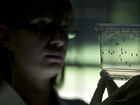Some six million Americans have drinking water tainted with higher levels of lead than allowed by U.S. federal guidelines, the USA Today reported on Thursday.
With the nation focused on a major crisis in Flint, Michigan, where lead from aging pipes leeched into the municipal water supply, the newspaper launched an investigation which found higher than acceptable lead levels in about 2,000 water systems across the United States.
 Full Story
Full Story
Sixteen people have been disciplined in Singapore for a hepatitis C outbreak in the city-state's largest hospital last year that left at least seven patients dead, officials said Thursday.
The Ministry of Health said in a statement four of its staff holding director-level roles were given warnings and financial penalties for failing to step in early to prevent the disease from spreading. It did not say how much the penalties were.
 Full Story
Full Story
Fleeing war and seeking safety, refugees are three times more likely to suffer from schizophrenia compared to the native-born population, according to a new Swedish study.
Refugees are already known to be at increased risk of post-traumatic stress disorder (PTSD) and depression, but the study, published Tuesday in the BMJ medical journal, also showed a higher risk of psychotic disorders such as schizophrenia.
 Full Story
Full Story
A young Havana woman is the first known person to have contracted the Zika virus in Cuba, authorities said Tuesday.
The woman, 21, has been hospitalized though she so far does not have symptoms, the health ministry said.
 Full Story
Full Story
An experimental blood test may one day be able to detect a range of diseases including cancer and multiple sclerosis, based on signatures of DNA from dying cells, researchers said Monday.
The work, described in the Proceedings of the National Academy of Sciences, a peer-reviewed U.S. journal, is still in its early stages, but opens up vast possibilities, the study authors said.
 Full Story
Full Story
Singapore's parliament on Monday voted to ban the display of cigarettes in a bid to further curb the habit in a nation which already has one of the world's lowest smoking rates.
From 2017, merchants must keep tobacco out of sight and not display any advertisement of it, according to the the new regulations.
 Full Story
Full Story
French investigators probing the Germanwings plane crash called on Sunday for clearer rules on the lifting of medical confidentiality if pilots show signs of psychological problems.
 Full Story
Full Story
Doctors Without Borders has challenged Pfizer's application for an Indian patent for its pneumonia vaccine so cheaper versions can be available to children in poor countries and to humanitarian organizations.
The medical aid group, also known as Medicins Sans Frontieres, said in a statement late Friday that it was challenging Pfizer's patent application to allow Indian manufacturers to make affordable versions of the pneumococcal conjugate vaccine.
 Full Story
Full Story
U.S. regulators tentatively agreed on Friday to permit a field test of genetically modified mosquitoes that are designed to help limit the spread of Zika virus and other infectious diseases.
In a document published on its website, the U.S. Food and Drug Administration (FDA) said male mosquitoes called "OX513A" are unlikely to present risks to humans, animals or the environment.
 Full Story
Full Story
Hillary Clinton apologized Friday for praising Nancy Reagan's commitment to the fight against AIDS in remarks which critics said ignored President Ronald Reagan's dismissal of the mounting health crisis for years.
"Because of both President and Mrs. Reagan, in particular Mrs. Reagan, we started a national conversation, when before nobody would talk about it. Nobody wanted to do anything about it," Clinton said on MSNBC on Friday, when she was in California to attend the former first lady's funeral.
 Full Story
Full Story



